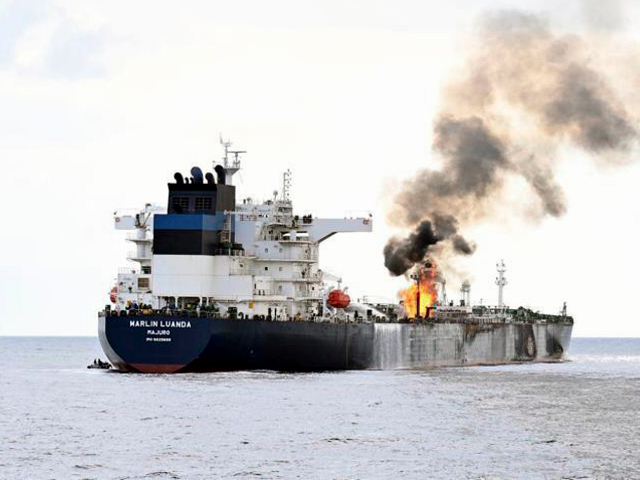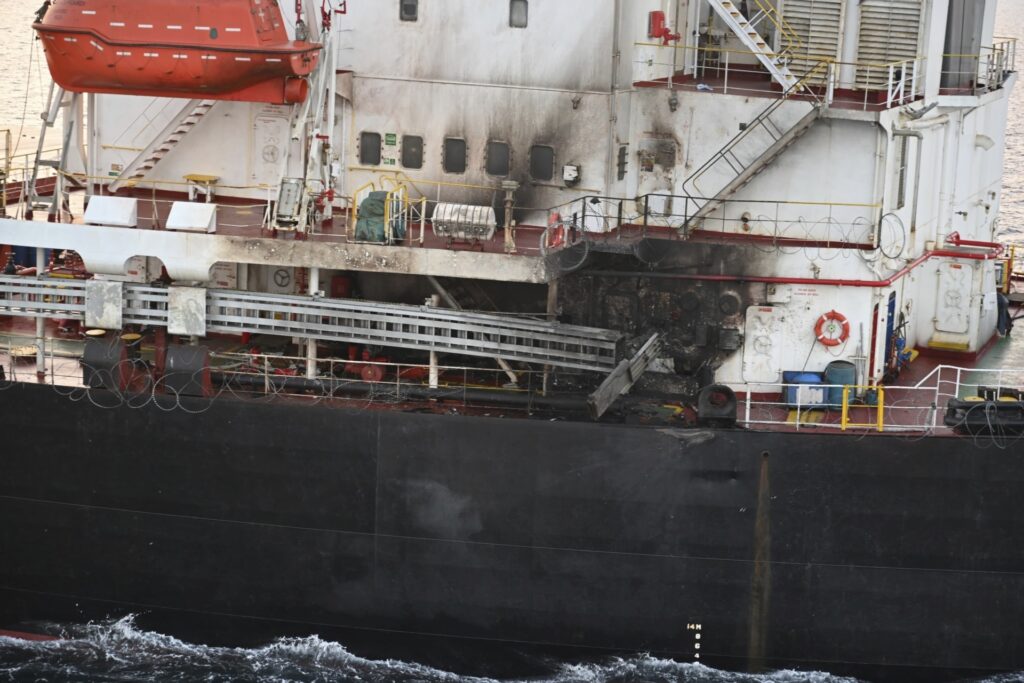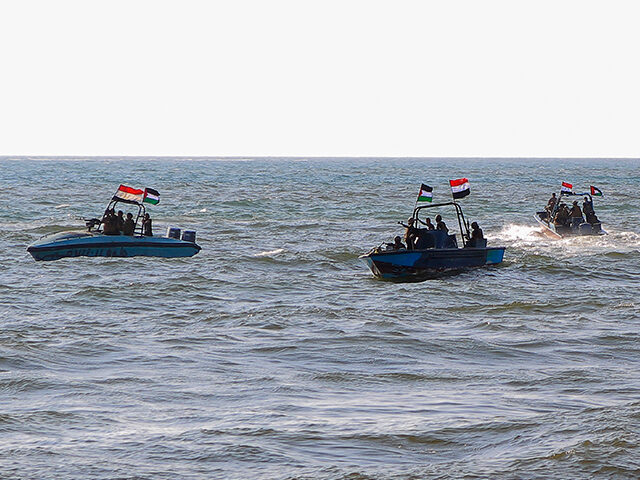Canadian Foreign Minister Melanie Joly said on Sunday she asked her Chinese counterpart Wang Yi to “help influence the Houthis to keep the Red Sea open.”
Joly said she met with Wang on Saturday and tried to convince him that keeping the Red Sea shipping lanes safe was “in China’s interests as an exporter.”
Joly and Wang spoke on the sidelines of the Munich Security Conference, which concluded on Sunday. Wang promised in his address to the conference that China would be a “force for stability” in the world, which would seem to imply that China might help to protect international shipping through one of the world’s busiest sea lanes against a vicious terrorist organization.

A view of the oil tanker Marlin Luanda on fire after a Houthi attack in the Gulf of Aden on January 27, 2024. (Indian Navy via AP)
Wang told Joly that his government wants to repair relations with Canada, which were severely damaged during the Meng Wanzhou affair.
Meng — the chief financial officer of telecom giant Huawei and a critical figure in the Chinese Communist Party — was arrested in Canada in December 2018 and held under house arrest for extradition to the United States on sanctions evasion charges. China took several Canadians hostage in retaliation and released them shortly after the charges against Meng were dropped in late 2021.
Canada has also accused China of interfering with its elections, and an investigation is ongoing. Wang alluded to these issues when he said the “current difficult situation” is “not what China wants to see.”
“The two sides are not rivals, let alone enemies, and should become cooperative partners,” Wang said, although he ruined the moment by following up with a little lecture about how Canada should “stop spreading false information about so-called China interference in domestic affairs.”
Joly certainly had a fair point about China’s rational interest in freedom of navigation, but it is a point others have made throughout the Red Sea crisis. The Houthis publicly promised safe passage to ships from their allies in China, Russia, and Iran — but the terrorists have not demonstrated precise judgment in deciding which commercial vessels to attack or hijack, and China cannot rely entirely on ships flying its national flag for its enormous volume of shipping through the Suez Canal.

The U.S.-owned ship Genco Picardy came under attack from a bomb-carrying drone launched by Yemen’s Houthi rebels in the Gulf of Aden on January 17, 2024. (Indian Navy via AP, File)
China has nevertheless been content to let the Houthis wage their terror campaign, even as significant financial damage accrues to Chinese companies from lengthier and more expensive alternate shipping routes. Chinese state media occasionally lecture the Western world to give in to the Houthis’ demands and pressure Israel to halt its war against the Hamas terrorists in Gaza, and China insists the only permanent solution to regional tensions is giving the Palestinians a state.
The Houthis on Sunday claimed they inflicted “catastrophic damage” in their latest terror attack on what they described as a British cargo ship. The Houthis said the ship was crippled and in danger of sinking, while U.K. Maritime Trade Operations (UKMTO) said it received a report of a crew abandoning ship.
Joly said she also spoke with Wang about the Russian invasion of Ukraine during their meeting at the Munich Security Conference, another conflict in which China has not criticized the aggressor or used its leverage to work on peace negotiations.
“We need to put maximum pressure on Russia. Our sanctions are strong, but China cannot be the loophole in our sanction system,” Joly said she told Wang.

COMMENTS
Please let us know if you're having issues with commenting.